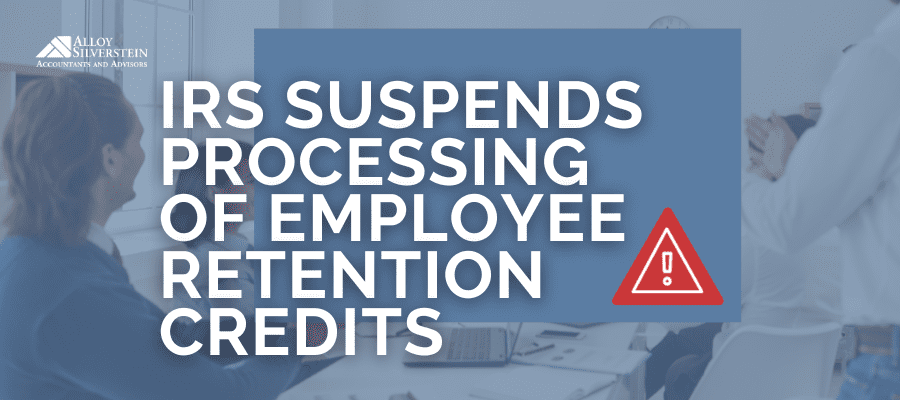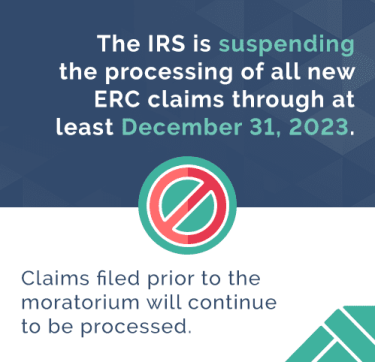

With the recent rise of Employee Retention Credit scams and schemes, the IRS has announced a new withdrawal process for Employee Retention Credit claims. This new initiative aims to help businesses that are concerned about ineligible claims. The new withdrawal options allows for certain employers who have not yet received a refund to withdraw their submission of the ERC claim if they have any questions or concerns regarding the validity of the application. Visit the IRS website to learn more about this update.
We have all been inundated by ads from Employee Retention Credit (ERC) mills that claim virtually all businesses are eligible for the employee retention credit. The truth, however, is that there are very specific circumstances that make a business eligible. These include a significant decrease in revenue during the measurement period or a mandated government shutdown during COVID. The unscrupulous ERC mills often promote claiming a supply chain interruption as a reason to qualify for ERC.
 The IRS has had enough of this. Because of the aggressive marketing to ineligible applicants, there are so many questionable claims coming in that the IRS is suspending the processing of all new ERC claims through at least December 31, 2023. Claims filed prior to the moratorium will continue to be processed.
The IRS has had enough of this. Because of the aggressive marketing to ineligible applicants, there are so many questionable claims coming in that the IRS is suspending the processing of all new ERC claims through at least December 31, 2023. Claims filed prior to the moratorium will continue to be processed.
The IRS has already referred thousands of ERC claims for audit, and hundreds of criminal cases are being worked. IRS Commissioner Danny Werfel said, “The IRS is increasingly alarmed about honest small business owners being scammed by unscrupulous actors, and we could no longer tolerate growing evidence of questionable claims pouring in.” He also urges businesses to “seek out a trusted tax professional who actually understands the complex ERC rules, not a promoter or marketer hustling to get a hefty contingency fee.”
Businesses that already received ERC funds but are later found to be ineligible will be liable for repaying the credit with penalty and interest. Defending a claim would not be a problem if there is sufficient documentation showing how the claims follow the rules. It is doubtful, however, that all the pop-up ERC mills documented the claims properly. It is also doubtful that all of them will still be around to help a business trying to defend an ERC claim.
The IRS is working on details for a withdrawal option for those who have filed a claim that has not yet been processed. This would allow any of the approximately 600,000 claims awaiting processing to be withdrawn. Meant to protect the honest business owner who was misled by a promoter, the withdrawal process will not protect those who willfully filed fraudulent claims. Even if withdrawn, a willful filing or conspiring to file a fraudulent claim could be subject to criminal investigation and prosecution.
And as for that supply chain interruption excuse, the IRS says that “a business with those issued will very rarely meet the eligibility criteria.”
For a little bit of background, the ERC is a relief measure created to help businesses keep employees on payroll and prevent layoffs during the COVID pandemic. Each employee credit can be worth up to $26,000. The deadline to file an ERC claim for 2020 and 2021 is April 15, 2024, and April 15, 2025, respectively. Following is how the latest IRS update may impact your business.


If you have questions or concerns on the Employee Retention Tax Credit, get in touch with an Alloy Silverstein Accountant and Advisor today.


Associate Partner
Julie has over 20 years of experience in public and private accounting, representing varied clientele including the medical, legal, and real estate industries and trusts.
View Julie's Bio →